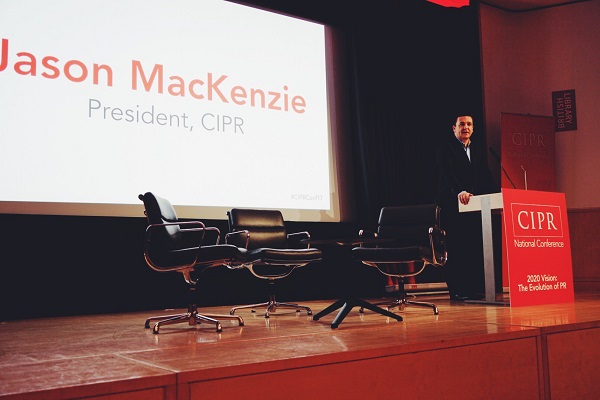PR: it’s about people, stupid!

About the author
Richard Bailey Hon FCIPR is editor of PR Academy's PR Place Insights. He teaches and assesses undergraduate, postgraduate and professional students.

These are shouty, sweary times.
Opinions are presented and the counter-arguments are asserted.
Pro, anti. Facts versus fake news.
I’ve been turning to Isaac Newton for lessons in contemporary public relations.
‘Every action has an opposite and equal reaction.’
Newton’s third law should be a requirement of every public relations plan, forcing us to consider the effects of our actions (including inaction) and the likely reaction.
It could also be the first law of publicity, since so many stunts work by wilfully provoking outrage. Was this the case with the Greggs advent calendar? It’s surely a more positive interpretation than to ascribe it to a crass lack of judgement. Or have my opinions been shaped by the media reaction?
Next year’s CIPR president, Sarah Hall, has recently found herself in the centre of a storm where an action that seemed reasonable and proportionate resulted in the big guns of major media trained in her direction. There was an opposite reaction – but was it equal?
It is if we stand behind Sarah, collectively. She was causing no harm, and intended to do good by addressing concerns about how consent and sexual abuse are presented to children (topics high up the media agenda in 2017).
She is entitled to her opinion; she has legitimacy on this topic as a mother and as a feminist. She has a professional perspective on the power of stories and the impact of the media in shaping public opinion.
The media still has a power to frame issues: given a binary choice between Snow White and snowflake, it’s an easy decision. But I didn’t see Sarah advocating censorship or book burning. Rather that we’re engaged in a long-term process of behaviour change that involves many actions by very many people.
Actions, by people. Leading to behaviour change. We’re back to public relations – and to a lesson I’ve learnt from Sarah’s predecessor as CIPR president.
Jason MacKenzie has sent a year-end message to CIPR members with the new issue of Influence magazine.
He says he’s ‘had a chance to renew old acquaintances and meet hundreds of members for the first time.’ He’s also proud that ‘nearly 2,000 new members will have joined us by the end of the year.’
I don’t know how many members did not renew; or how many retired or died. There will always be churn. But these are impressive figures for a body that historically has around 10,000 members.
What’s working? Jason, Sarah and the CIPR will talk about professionalism, about CPD and the growing numbers of chartered practitioners, about ethics, about qualifications, and about being the only chartered body representing PR practitioners.
To me, these tell part of the story, but there’s something else, and it comes back to people.
Jason has met hundreds of CIPR members in the past year. I’m one of them – but in my case we had multiple encounters. There were university, PR Academy and CIPR events in Bristol, Birmingham, Leeds, London and most recently Winchester where Tom Watson and Paul Noble received their honorary fellowships.
One of the themes I’ve picked up on across these encounters was a willingness to embrace difference. At the House of Lords, people with different political allegiances enjoyed lunch together.
Public debates seem to force us into binary and antagonistic positions. Social media encourages the filter bubble and allows us to ignore other views.
Young, old. Male, female. North, south. Black, white. Rich, poor. Internal, external.
We don’t always have to agree: that’s not healthy. But if public relations is to win support and change attitudes and behaviours, we need to reach out to others who may not share our views.
Jason has taught me a lesson in the power of the sheer force of personality to bring people together.
Next, it’s Sarah’s turn. She’s a moderniser looking to the future, but she’s also planning to mark the 70th anniversary of the IPR (now CIPR). I’ve been a member for 20 of those 70 years: I suspect that makes me aged but not quite vintage. I’ll be supporting her presidency – and welcoming her force of personality too.